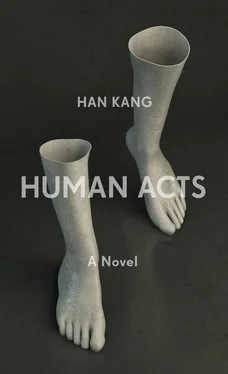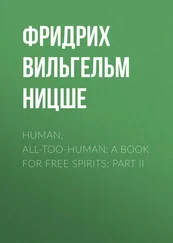Han Kang - Human Acts
Здесь есть возможность читать онлайн «Han Kang - Human Acts» весь текст электронной книги совершенно бесплатно (целиком полную версию без сокращений). В некоторых случаях можно слушать аудио, скачать через торрент в формате fb2 и присутствует краткое содержание. Год выпуска: 2016, Издательство: Portobello Books, Жанр: Современная проза, на английском языке. Описание произведения, (предисловие) а так же отзывы посетителей доступны на портале библиотеки ЛибКат.
- Название:Human Acts
- Автор:
- Издательство:Portobello Books
- Жанр:
- Год:2016
- ISBN:нет данных
- Рейтинг книги:4 / 5. Голосов: 1
-
Избранное:Добавить в избранное
- Отзывы:
-
Ваша оценка:
- 80
- 1
- 2
- 3
- 4
- 5
Human Acts: краткое содержание, описание и аннотация
Предлагаем к чтению аннотацию, описание, краткое содержание или предисловие (зависит от того, что написал сам автор книги «Human Acts»). Если вы не нашли необходимую информацию о книге — напишите в комментариях, мы постараемся отыскать её.
Human Acts
Human Acts — читать онлайн бесплатно полную книгу (весь текст) целиком
Ниже представлен текст книги, разбитый по страницам. Система сохранения места последней прочитанной страницы, позволяет с удобством читать онлайн бесплатно книгу «Human Acts», без необходимости каждый раз заново искать на чём Вы остановились. Поставьте закладку, и сможете в любой момент перейти на страницу, на которой закончили чтение.
Интервал:
Закладка:
UP RISING
You’re not like me, Seong-hee.
You believe in a divine being, and in this thing we call humanity.
You never did manage to win me over.
I could never believe in the existence of a being who watches over us with consummate love.
I couldn’t even make it through the Lord’s Prayer without the words drying up in my throat.
Forgive us our trespasses, as we forgive those who trespass against us.
I forgive no one, and no one forgives me.
NOW
The sign for the bus stop sheds its dim light down on you.
In your backpack is a notebook, pen and pencil, toiletries, a 250ml bottle of water, the Dictaphone and tapes.
The stop is a little out of the way, but all Line 3 buses come here. A succession of these buses have pulled up and whisked their new passengers away, and now you are alone. You stare silently at the paving slabs that lie beyond the reach of the lamp’s light.
You turn and walk away from the sign. The straps of your backpack are cutting into your shoulders, so you slide your hands beneath them. The summer night is sultry, its hot fug of air dragging on your limbs. You pace a few yards one way, then turn and double back. Up to the edge of the road, then back.
When Park got his things together to leave the office, you shouldered your backpack and accompanied him out. The two of you walked to the bus stop together, your conversation meandering aimlessly and then trailing off when Park’s bus arrived. He got on, found a seat and nodded awkwardly in your direction in lieu of a formal goodbye. You nodded back.
What might you have been able to bring yourself to do if he hadn’t shown up and interrupted you?
You wonder.
Would you have been able to summon the courage to press the ‘record’ button?
Would you have been able to string together a continuous thread of words, silences, coughs and hesitations, its warp and weft somehow containing all that you wanted to say?
You’d allowed yourself to believe that yes, you could have done all this; that was why you’d come in to the office today, the public holiday for National Liberation Day. You’d even decided to stay up all night if that was what it took, hence the toiletries.
But would you really have gone through with it, even if you hadn’t been interrupted?
If you go back now to your cramped, stifling room, will you be able to place the Dictaphone on the table in front of you and start again, from the beginning?
Last Monday, as soon as you heard the news about Seong-hee, you called her. You waited an hour before calling again, and on the fourth try the call finally went through. The first conversation you’d had in ten years was brief and matter-off-act. You held your breath and strained to listen to the voice made hoarse from radiation therapy.
‘It’s been a long time,’ she rasped.
‘I was wondering how you’ve been getting on.’
You didn’t offer to come and visit her in the hospital, so there was no need for her to protest about that. It was pure coincidence that the parcel from Yoon arrived at your office the very next day, yet now these two events seem inextricably entangled, taut as a barbed wire knot. The two of them together are almost more than you can bear.
Making the recording, and seeing Seong-hee.
The recording you need to make before seeing Seong-hee.
Enduring things is what you do best. Gritting your teeth and bearing them.
You still had a year of middle school left when you dropped out to get a job. Aside from the two years you spent in prison, you’ve never been out of work. You have been unfailingly diligent and unfailingly taciturn. Work is a guarantee of solitude. Living a solitary life, you are able to let the regular rhythm of long hours of work followed by brief rest carry you through the days, with no time to fear the outer dark beyond the circle of light.
YOU REMEMBER
The work you did as a teenager, though, was different.
Those were fifteen-hour days with only two days off per month. ‘Weekends’ were non-existent. The wages were half of what the men got paid for the same work, and there was no overtime pay. You took pills to keep you awake, but exhaustion still battered you like a wave. The swelling of your calves and feet as morning wore into afternoon. The guards who insisted on body-searching the female workers every night before they went home. Those hands, which used to linger when they touched your bra. The shame. Hacking coughs. Nosebleeds. Headaches. Clumps of what looked like black threads in the phlegm you hacked up.
We are noble.
That was one of Seong-hee’s favourite sayings. Every Sunday off work she spent attending lectures on labour law at the offices of the Cheonggye Clothing Labour Union, and everything she heard there went into the notes she then used for your meetings. You had no particular apprehensions when you started attending those meetings, given that all Seong-hee said about them was that they were for studying hanja. And technically this was true; you and the other women really did study hanja each time you met. We have to know 1,800 characters if we want to read a newspaper properly . The first task of the evening involved you each writing thirty characters into your notebooks, memorising them as you did so. Then Seong-hee would begin her labour lecture. And that means … we are noble . Seong-hee wasn’t a natural orator, and whenever she lost her train of thought or couldn’t quite recall the word she’d wanted she would use that phrase as a kind of stop-gap. According to the constitution, we are noble. As noble as anyone else. And just like anyone else, we have rights. According to labour law . Her gentle, resonant voice almost put you in mind of a primary school teacher. Jeon Tae-il died for the sake of this law.
The labour union voted against the company-dominated union by a large majority. On the day the strike-breakers and policemen came to arrest its leading members, the hundreds of factory girls who were on their way from their dormitories to the second shift of the day formed a human wall. The oldest were twenty-one or twenty-two; most were still in their teens. There were no proper chants or slogans. Don’t arrest us. You mustn’t arrest us . Strike-breakers charged towards the shouting girls, wielding square wooden clubs. There must have been around a hundred policemen, heavily armed with helmets and shields. Lightweight combat vehicles whose every window was covered with wire mesh. The thought flashed through your mind: what do they need all that for? We can’t fight, we don’t have any weapons.
‘Take off your clothes,’ Seong-hee bellowed. ‘All of us together, let’s all take off our clothes.’ It was impossible to say who was first to respond to this rallying cry, but within moments hundreds of young women were waving their blouses and skirts in the air, shouting ‘Don’t arrest us!’ Everyone held the naked bodies of virginal girls to be something precious, almost sacred, and so the factory girls believed that the men would never violate their privacy by laying hands on them now, young girls standing there in their bras and pants. But the men dragged them down to the dirt floor. Gravel scraped bare flesh, drawing blood. Hair became tangled, underwear torn. You mustn’t, you mustn’t arrest us . Between these ear-splitting cries, the sound of square cudgels slamming into unprotected bodies, of men bundling girls into riot vans.
You were eighteen at the time. Dodging a pair of grasping hands, you slipped and fell onto the gravel, grazing your knees. A plain-clothes policeman stopped in his wild dash forward just long enough to stamp on your stomach and kick you in the side. Lying with your face in the dirt, the girls’ voices seemed to swing between yells and whispers as you drifted in and out of consciousness. You had to be carried to the emergency room of the nearest hospital and treated for an intestinal rupture. You lay there in the hospital bed, listening to the reports come in. After you were discharged you could have resumed the fight, stood shoulder to shoulder with your sisters. Instead, you went back down south to your parents’ home near Gwangju. Once your body had had enough time to heal, you went back up to Incheon and got a job at another textiles factory, but you were laid off within a week. Your name had been put on the blacklist. Your two years’ experience working in a textiles factory was now worth nothing, and one of your relatives had to pull some strings to get you a job as a machinist at a Gwangju dressmaker’s. The pay was even worse than when you’d been a factory girl, but every time you thought of quitting you recalled Seong-hee’s voice: And that means … we are noble. You wrote to her, calling her onni, older sister. I’m getting on fine, onni. But it looks like it’ll be a while before I can learn how to be a proper machinist. It’s not so much that it’s a tricky technique to learn, just that I’m not being taught very well. All the same, I have to have patience, right?
Читать дальшеИнтервал:
Закладка:
Похожие книги на «Human Acts»
Представляем Вашему вниманию похожие книги на «Human Acts» списком для выбора. Мы отобрали схожую по названию и смыслу литературу в надежде предоставить читателям больше вариантов отыскать новые, интересные, ещё непрочитанные произведения.
Обсуждение, отзывы о книге «Human Acts» и просто собственные мнения читателей. Оставьте ваши комментарии, напишите, что Вы думаете о произведении, его смысле или главных героях. Укажите что конкретно понравилось, а что нет, и почему Вы так считаете.












